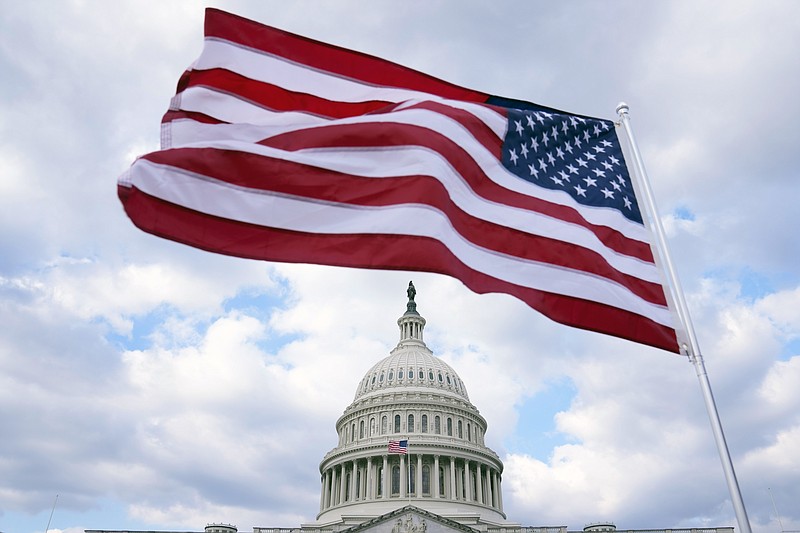Using specific dates to define entire eras is often a gimmick, a way of compressing wild and unwieldy life into a neatly artificial package. But some days, or years, just massively overproduce, leaving behind a nation, or world, transformed. As a quote typically attributed to Vladimir Lenin has it, "There are decades where nothing happens, and there are weeks where decades happen."
For the reactionaries who drive Republican politics today, one year looms like Godzilla over a darkening conservative skyline: 1965. Sam the Sham and the Pharaohs had a jabberwocky hit song in "Wooly Bully," and President Lyndon Johnson signed into law the Hart-Celler Immigration Act and the Voting Rights Act.
"Wooly Bully" isn't what bothers conservatives.
The Voting Rights Act and Hart-Celler profoundly altered the nation. As potent as each law was on its own terms, combined the two were monumental. In effect, one opened the door to nonwhite immigration, the other to nonwhite political power. For racial reactionaries, it's a frightening combination, which is why supporters of the immigration bill tried to calm conservative fears during debate. The law would not "upset the ethnic mix of our society," Sen. Edward Kennedy said.
It turned out that Kennedy was wrong. In 1960, whites constituted 88.6% of the U.S. population. By 2020, that number had fallen to 58.9%. In 1960, only 5% of the U.S. population was foreign-born. In 2020, it was 13.6%. On the 50th anniversary of the immigration act, in 2015, Pew Research Center reported that nearly 59 million immigrants had come to the U.S. since 1965.
For a while now, Republicans have been working to make it harder to vote, harder to count votes and harder for the electoral winners to reap the rewards of victory.
Last month, in a case challenging legislative maps in Arkansas, the U.S. Court of Appeals for the Eighth Circuit ruled 2—1 that only the U.S. Department of Justice — no private parties — could file voting rights challenges in court under Section 2 of the Voting Rights Act. If the radical ruling is allowed to stand it will effectively enable a president to undermine voting rights anywhere in the land, simply by telling a politicized Justice Department to ignore violations.
It's doubtful any of these concerted assaults on voting would be taking place absent the demographic changes initiated by the 1965 immigration act. Conservatives can't do very much about the demographic challenge; even a complete halt to immigration today would not alter the multi-racial trajectory of the 21st century. Lots of babies are still being born. But they can hobble democracy to preserve White overrepresentation in powerful institutions. That imbalance isn't restricted to the GOP in Congress. For instance, a Bloomberg Law analysis found that of the 94 federal district courts, 25 have never had a non-white judge.
Ultimately, the attack on voting is an attack on who gets to be an American and exercise the power and privileges that accompany that title. The American identity began to broaden beyond White natives in 1965, encompassing newly empowered Blacks (and Native Americans) and newly admitted immigrants. If conspiracy theorists really want to find the point when the dastardly "Great Replacement" of Whites in the U.S. began, they should stop troubling themselves with nonsense about the Southern border or shadowy billionaires. The birth of a multiracial nation took place in 1965 in Washington, DC. It was accomplished in public, by majority vote. Democratically.
